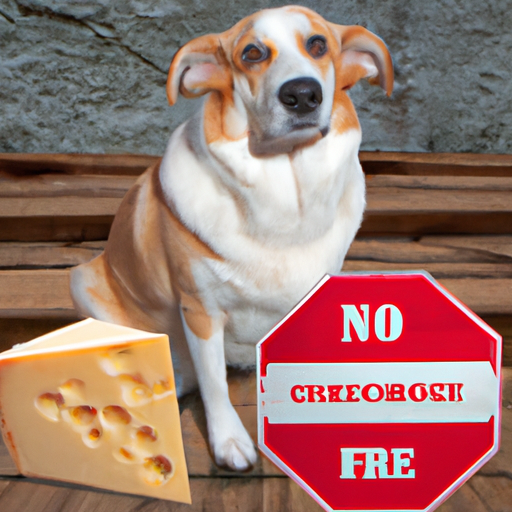Understanding Your Dog’s Dietary Needs
You, as a loving caregiver, might be tempted to share a piece of cheese with your canine friend. After all, who can resist those pleading eyes? But it’s important to understand that what’s good for you isn’t always good for your pooch. Dogs have a different digestive system and different dietary needs compared to humans. Certain foods that we consume regularly, like cheese, can cause problems for dogs.
The Problem with Cheese
Cheese is a dairy product and like most dairy products, it contains lactose. Dogs, especially as they age, may become lactose intolerant. If your dog is lactose intolerant and consumes cheese, it could result in:
- Upset stomach
- Diarrhea
- Gas
- Vomiting
In addition to lactose, cheese can also be high in fat, which can contribute to obesity and other health problems like pancreatitis in dogs.
Recognizing Symptoms of Lactose Intolerance in Dogs
It’s important to recognize the signs of lactose intolerance in your dog. These include:
- Diarrhea
- Vomiting
- Loss of appetite
- Abdominal pain
If your dog shows any of these symptoms after consuming cheese, it’s probably best to avoid giving them dairy products in the future.
Alternatives to Cheese
While cheese might be off the menu, there are plenty of other treats you can give your dog. For instance:
| Treat | Benefits |
|---|---|
| Carrots | Low in calories and high in fiber and vitamins |
| Apples | Rich in vitamins A and C |
| Blueberries | Packed with antioxidants |
Remember, these should be given in moderation and always make sure to remove any seeds or pits as they can be harmful to your dog.
FAQ
Q: Can my dog eat any type of cheese?
A: It’s best to avoid all types of cheese to prevent potential digestive issues.
Q: My dog ate cheese and seems fine. Should I still be concerned?
A: While some dogs can tolerate cheese, it’s best to avoid it due to the potential health risks.
Q: What should I do if my dog accidentally eats cheese?
A: Monitor your dog for any signs of distress. If symptoms persist, consult with a vet.
Q: Are there any safe dairy products for dogs?
A: Some dogs can tolerate small amounts of plain yogurt or cottage cheese, but it’s best to consult your vet first.
So next time your dog gives you those pleading eyes, think twice before sharing your cheese. Their health and wellbeing are in your hands, and as their caregiver, it’s up to you to make the best choices for them.



